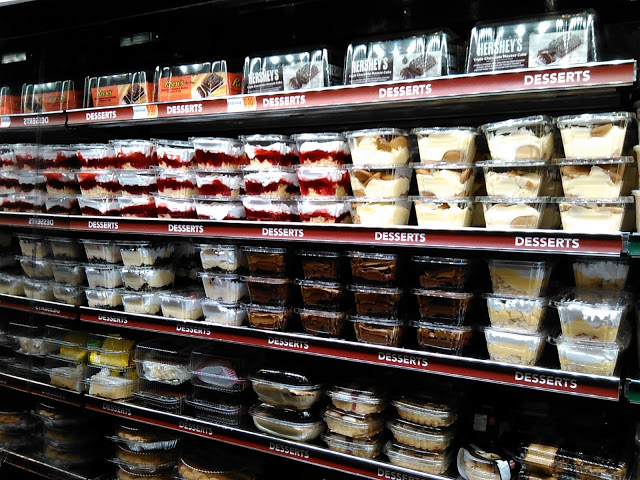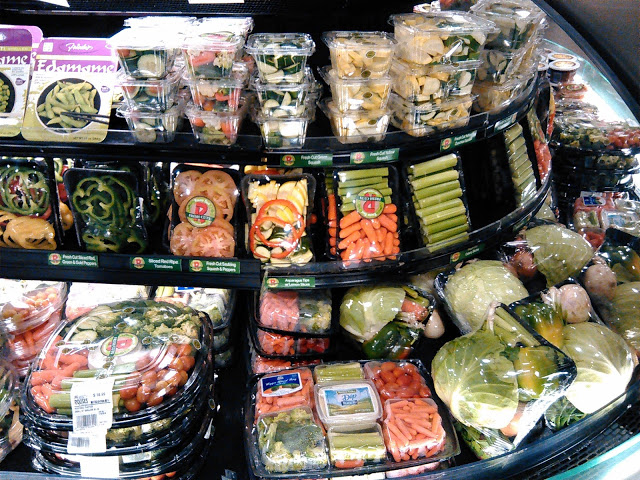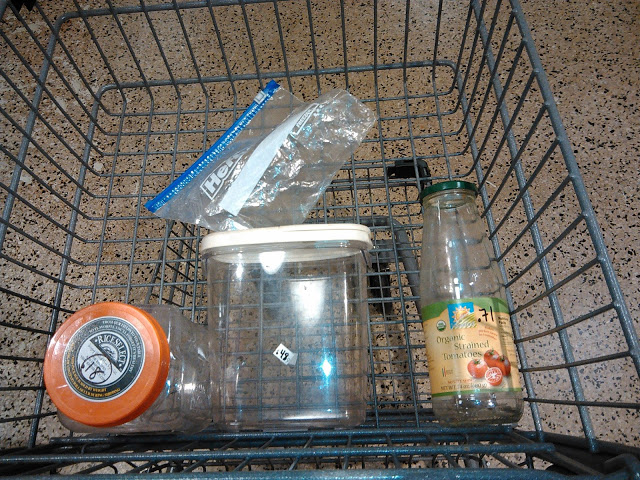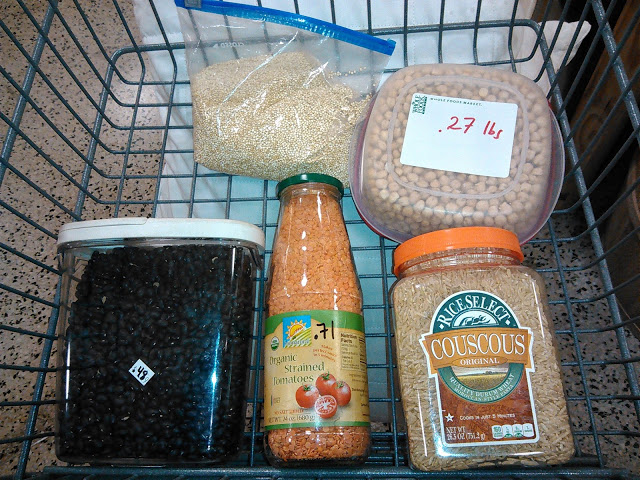“Bottled water companies are taking what’s ours to begin with, packaging it in a lethal way, overcharging us for it, and asking us to pay for the recycling. All they’re really doing is selling us this convenience, which is actually highly inconvenient.
”
It is no secret that we live in an era of convenience. Instacarts and Doordashes can provide us lunch with the touch of a button. Walk into any Starbucks and count the deluge of customers willing to pay $3.45 for a coffee rather than make one at home for less than 30 cents. If you're in this category, and we all are from time to time, allow yourself a moment to people watch while you sip in that comfy chair. Count those in line who had even slightly anticipated a daily caffeine craving and brought a refillable container with them. Then imagine everyone else, the overwhelming majority who depend on this take-&-toss lifestyle without second thought. The trash cans pile up. I decide to walk outside.
I look on the ground and see an assortment of non-compostable, non-biodegradable waste. Much from the Starbucks and McDonald’s of the world. I see eclectic piles scattered under the overpass, tossed beside Walmart’s parking lot. Smirnoff cap. Doritos bag. Smoothie King cup. Soda lid there. Green straw. Mardi gras beads here. Mardi gras beads everywhere, really...
In the past year, I have tried to learn all I can about the profiteering industry that is Big Plastic, a subsidiary of Big Oil. Plastic is a petrochemical byproduct of the unusable oil forms that we extract out of the Gulf of Mexico. The same byproducts that are related to the BP oil spill and refinery plants that cause cancers in nearby low-income communities.
Fleece, emergency water bottles, engines covers, wheel inflation caps, and computer casings are all examples of the wonderful uses of the synthetic creation. But every year, global manufacturers produce more than the human biomass of plasticcombined, and the vast majority of it is unnecessary. Big Plastic’s swath of culpability over health, environmental, and social justice issues is why I combat its production with deliberate non-consumption in all forms. Consider me an anti-plasticist. My partner Kevin is a willing participant.
Strolling through the produce section of Rouses left me exceptionally baffled. Almost all things natural, from cabbage to carrots, were covered with the familiar, clear gloss. Who makes all this stuff? I remember reading that every ounce of plastic that has ever been created still exists somewhere in the world today. In landfills, in streets, in parks, in oceans, in fish, in us. Did you know when exposed to heat, plastic becomes hormonally activated and can disrupt our endocrine systems?
Imagine our post-consumption version of these neatly organized shelves replicated across the 37 Rouses stores between Alabama and Louisiana. Then expand this across every grocery chain in the world. When you combine the typical household’s improper waste management with this plastic unanimity, we have a literal clutter$%*@.
Escaping plastic purchase as a consumer requires strategy and commitment. To engage is to swim upstream through a toxic gauntlet of processed preservatives, soon-to-be-diabetic drinks, and tauntingly cheap alternatives. (When in doubt, choose glass.) I have failed many a time.
Bringing my own backpack or reusable bags to the store would not suffice. What continually irked me throughout this discovery process was the tyranny plastic held even over my staple diet of rice and beans. Things like Mahatma, Goya, La Canderita (corn tortillas), and Roman Meal (wheat bread). I could not leave the store without directly supporting landfill growth. Every week I carried plastic proof to show for it.
Goya black bean packaging, post-consumption
My mind fixated on mason jars and our lack of them. Buying in bulk seemed like a distant reality. When I visited the Whole Foods' or Rouses' bulk sections, I noticed all the plastic bags provided to buy goods. Did this not defeat the entire purpose of buying in bulk? Fortunately, the Whole Foods' homie Trayshon told me if I bring in my own container, we can weigh it and write that on the label to tare it. “That's wassup!” I remember thinking. Except Whole Foods is notoriously expensive...
Tracking down bulk-buying containers was a challenge in and of itself. Our collection of Tupperwares and jars had dwindled between our 4 prior locations of residence across the city. A quick google search revealed the local Walmart sold 12-packs of brand new (glass!) mason jars for $8.99. These, too, were wrapped in plastic, so by principal I turned the temptation down. A bit more grit and perseverance brought new enlightening findings, which I share below:
To score some storage containers in a pinch, I highly recommend Freecycle.org (create a posting for mason jars wanted), Craigslist (free section), or Goodwill. Goodwill typically sells its reusable containers between 30 and 60 cents. I began collecting whatever I could...an old Couscous tub, a ziploc bag, a Bloody Mary jar from work, two Tupperwares, and a cereal storage bin that reminded me of the one in grandma’s kitchen.
With my new acquisitions, my first thoughts were to bypass Whole Foods altogether. (Our budget simply did not allow for $20 quinoa purchases.) I walked into Rouses with a backpack full of containers, a bit nervous. As expected, the bulk section was filled with plastic bag dispensers. When I asked the customer service representative how I could use my own containers, he said, ‘You can’t. Just buy with our bags and then transfer it over when you leave.’ He walked off shaking his head, murmuring frustratedly under his breath. I wanted to smack him like, "Wake up!" Moments like these are what I refer to when I talk about swimming upstream. Our systems of consumerism are designed for folks to be inconvenienced when we voice to act sustainably. Someone is profiting off our unconscious use of plastic bags everyday. Meanwhile, our ocean life perishes. I left Rouses discouraged and empty-handed, feeling like me trying to do the 'right thing' was an annoyance to this young man trying to do his job. That was enough for the day.
After two days of sulking, I collected more jars, rebuilt a resolve to cut ties from plastic, and biked to Whole Foods. When I asked if I could weigh my containers as Trayshon promised, the staff were extremely affirming and helpful. I felt naughtily counter-cultural rolling up to the cashier with a stash of mis-matched, empty receptacles. After every scale reading, I penned in the decimals with a growing optimism. I am one-step closer to aligning my beliefs and consumer practices. It was time to stroll over to the bulk section and stock up. The satisfaction of scooping from those once-elusive barrels of beans and grains was divine! I dropped a few chickpeas on the ground by mistake, felt their distinct texture between my thumb and forefinger, and recalled the slippery sensation of grabbing chickpea-filled plastic bags off the shelf. Never again.
So here they are: a salvaged couscous jar filled with brown rice, cereal bin of black beans, Bloody Mary glass of red lentils, Tupperware of chickpeas, and ziploc bag full of quinoa. My motley crew of containers held out! All of this I squeezed carefully into my backpack, after receiving a $2 discount for bringing in my own containers. Walking out of Whole Foods this day, the windiest cold-front would blow me off my bike before it could wipe the smile off my face. The total cost me less than 20 bucks, and even if I could get the same quantity from Winn Dixie for $15, it wouldn't be the same. After this experience, I know I can only buy bulk from hereon out. Rouses, your store manager better be ready next time. I'm calling you out. Stay up for more of my trials navigating the system sustainably. We can never let convenience substitute for our consciousness.












